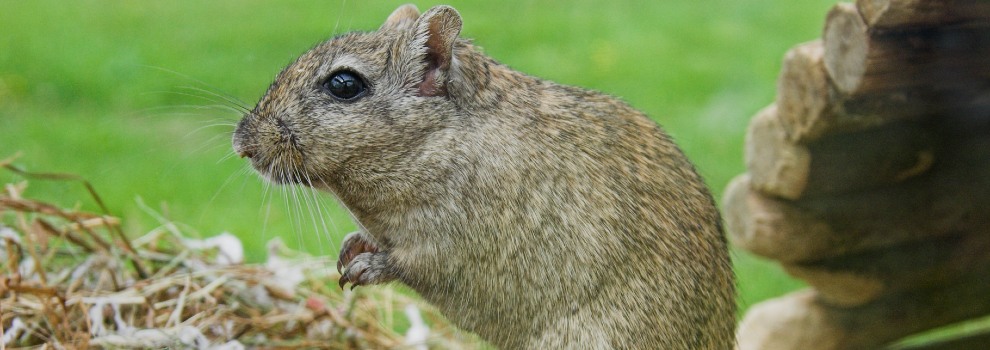- Find a Pet
- Advice and Welfare
- Ways to Give
- Get Involved
- What We Do
- Search
- My RSPCA
- Report a concern
- Gift in Wills
-
Colour modeVivid Calm
- Home
- Advice and welfare
- Pets
- Rodents
- Gerbils
- Behaviour
Understanding gerbil behaviour
Here's a handy checklist of what your pet gerbils need to stay healthy and happy and behave as they would in the wild.

They will need:
- To be able to hide and dig at all times, day and night. As prey animals, gerbils are naturally timid and use their large, deep burrows to protect themselves from predators, which they construct by digging.
- Space to exercise and play together at all times of the day and night. Wild gerbils are usually active both day and night in the summer, tending to spend more time underground in the winter and emerging only on the sunniest days.
- A running wheel - this will help them exercise, but it shouldn't be the only form of enrichment you give them. Wheels must be good quality with a large diameter, such as one intended for rats. They'll need to be a solid structure and axle-free, and should ideally have a non-slip running surface. As your vet for advice if your gerbils develop sore feet whilst using the wheel and remove it temporarily.
- Tubes and tunnels - gerbils naturally make burrows, so give them tubes and tunnels to recreate this wild behaviour. Give them tubes of no less than 5cm diameter - or they will get stuck! Avoid plastic objects, as gerbils will gnaw them - tunnels made of wood or hay are ideal.
- Objects they can scent-mark, such as a large stone. Gerbils recognise each other by their own scent, and both sexes have a strong motivation to scent-mark their territory using their bellies and feet. They may also use urine and faeces.
Treating your gerbils with kindness
Never startle or frighten your gerbils, as they'll assume they're in danger if they hear loud or threatening noises. If a gerbil perceives a threat, they'll thump their hind feet rapidly, which will prompt the whole group to disappear into the burrow. (Thumping can also occur in scenarios of excitement and states of emotional arousal more generally, as well as in response to perceived threats, so it is not always an indicator of negative stress). Never leave your gerbils out of their gerbilarium unattended or overnight.



